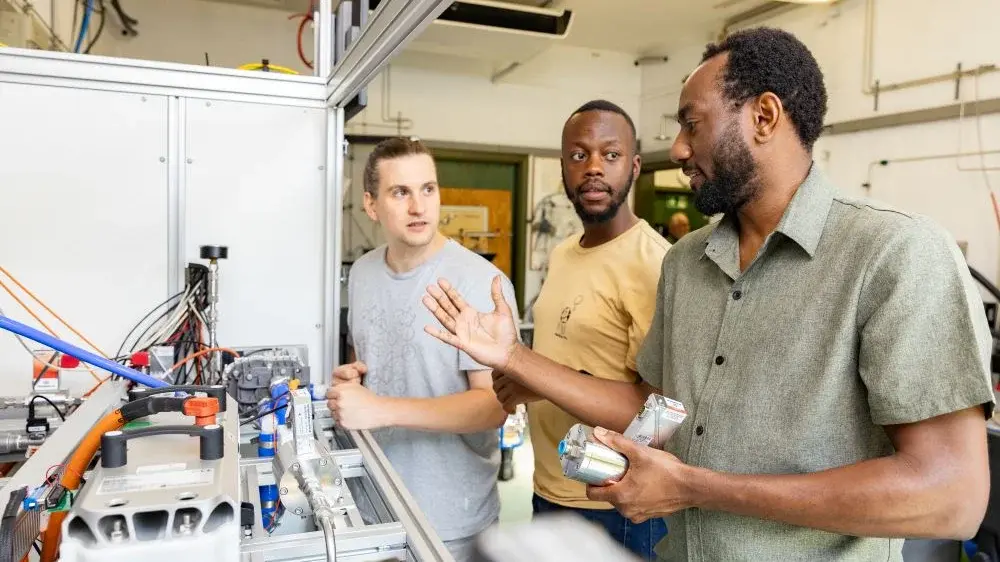Teaching
The future energy system requires the use of renewable energies. This makes the use of energy storage systems necessary. During the course, students not only learn about individual components, but also how they interact in the system. This includes hybrid systems such as fuel cells and batteries, measurement methods to qualify fuel cells and batteries, fault detection and the topic of safety. In order to understand how batteries function optimally in a system, the students also gain their own experience in common balancing procedures. Parallel to this work, digital forms of the components (digital twins) are examined and simulations are carried out with regard to their behavior. In addition, project work is carried out in the hydrogen technology and energy storage laboratory in cooperation with research institutions such as Fraunhofer LBF and industrial partners (e.g. ArchiGas, Segula, Honda, Hyundai).
The goal is for students to gain a clear understanding of various energy storage systems and be able to put them into practice.
